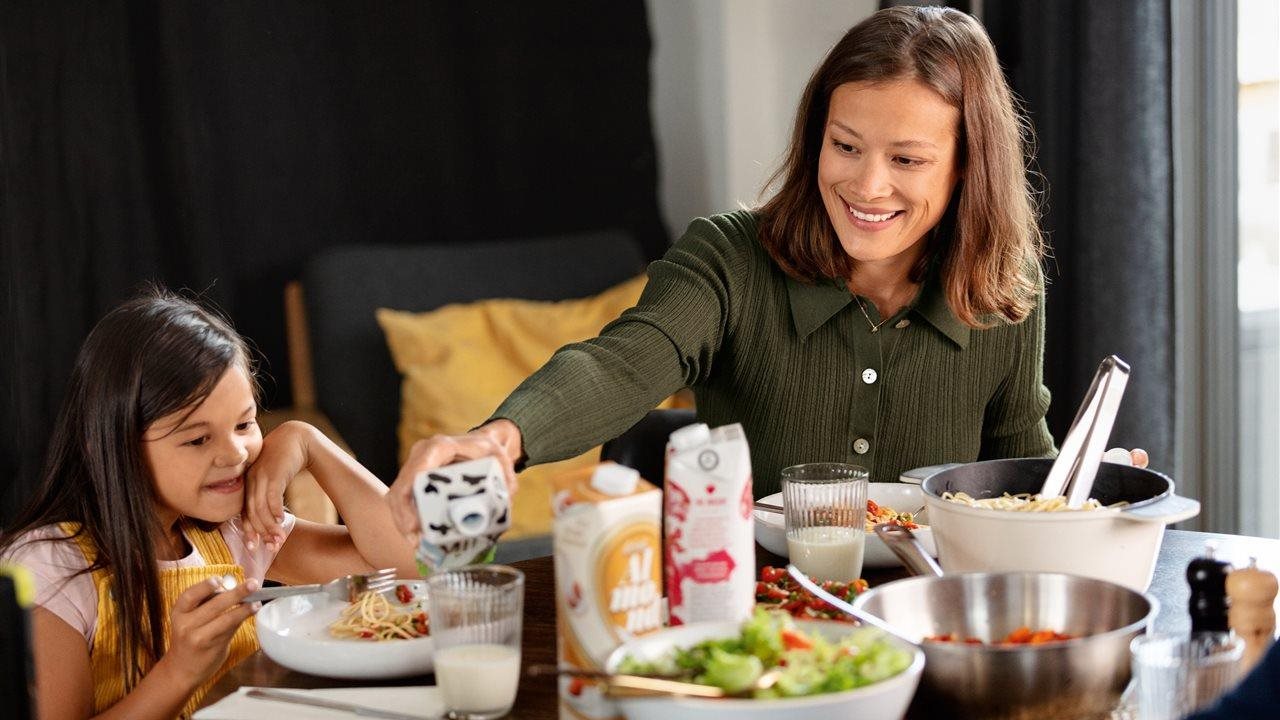
(BPT) – Whether you’re shopping online or in-store, grocery shopping can be time-consuming and costly. And some foods and beverages can expire quickly, wasting money and sending you back to the store for more.
But some foods and beverages can be the superhero of your pantry — shelf-stable products! Many shelf-stable products like milk or dairy alternatives use special aseptic packaging to extend shelf life and keep them tasting great without the need for refrigeration or preservatives. Shelf-stable cartons, like those made by Tetra Pak, help reduce food waste and prevent grocery dollars from being flushed down the garbage disposal. Since these products can stay on the shelf without refrigeration before opening, you can stock up, saving you the hassle of constant grocery runs and making it easy to keep an emergency stock of staples like milk, broth or even pet food!
What is aseptic packaging?
Pioneered by Tetra Pak in the 1950s, aseptic processing and packaging uses special technology and packaging materials that ensure the contents stay safe and tasty at room temperature. First, products go through a UHT process, which means they’re heated to an ultra-high temperature for about four to six seconds to kill any harmful bacteria. Then the food or beverage is immediately cooled down to room temperature. This rapid cooling helps maintain taste, quality and nutritional value.
Once this process is done, the food is packed into aseptic packaging, which plays an important role in keeping the product safe to store on the shelf. In the case of Tetra Pak cartons, which can be used for a wide variety of shelf-stable foods, six layers of material protect the product from air and sunlight exposure that could degrade the taste and nutritional value. This unique processing and packaging method allows your foods and beverages to last for months unopened on the shelf without the need for additives or preservatives.
Aseptic products have many benefits, including reducing food waste, adding convenience and protecting food during shipping.
Reducing food waste
Did you know that one third of food produced for human consumption goes to waste, according to the UN Food and Agriculture Organization? Recovering just half of that would be enough to feed the world.
Food waste occurs at home when food spoils before it can be consumed. Foods and beverages in aseptic packaging last for months unopened in your pantry, giving you more time to consume them and decreasing the chances they will become food waste.
Searching out shelf-stable foods that last longer can also help stretch your grocery budget and ensure every dollar spent is worthwhile.
Adding convenience
Thanks to the extended shelf life of aseptic products, you can easily stock up on household staples and avoid “quick trips” to the grocery store for “just one thing.” And since these products can be stored in the pantry or cupboard until opened, you’re not eating up valuable fridge space when you stock up.
If your pantry is short on space, foods and beverages in aseptic cartons come in square and rectangular shapes that are stackable to make the most of every inch. And, when you’ve finished the product inside, cartons can be recycled through most curbside recycling programs across the U.S. and Canada.
Shopping for shipping
Not all aseptic packaging is created equal. When items are shipped in a box, you want a robust package that arrives intact. Foods packaged in aseptic cartons are ideal for online shopping and shipping. In fact, cartons are about 60% lighter than cans. This translates to reduced carbon emissions during shipping, making cartons a more sustainable choice. And because aseptic products are perfectly fine at room temperature, you don’t need to worry about that ice pack melting during shipping.
So, the next time you grocery shop, take a closer look at foods and beverages in aseptic carton packaging. These products will not only save you valuable time and money, but they will also stay nutritious and flavorful while safely stored in your pantry, without the need for refrigeration or preservatives. When you choose to purchase foods and beverages in shelf-stable cartons, you are choosing to minimize unnecessary trips to the grocery store and to decrease food waste.
